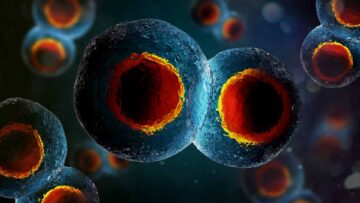Julian Koplin in Singularity Hub:
 In September, scientists at the Guangzhou Institutes of Biomedicine and Health announced they had successfully grown “humanized” kidneys inside pig embryos. The scientists genetically altered the embryos to remove their ability to grow a kidney, then injected them with human stem cells. The embryos were then implanted into a sow and allowed to develop for up to 28 days. The resulting embryos were made up mostly of pig cells (although some human cells were found throughout their bodies, including in the brain). However, the embryonic kidneys were largely human.
In September, scientists at the Guangzhou Institutes of Biomedicine and Health announced they had successfully grown “humanized” kidneys inside pig embryos. The scientists genetically altered the embryos to remove their ability to grow a kidney, then injected them with human stem cells. The embryos were then implanted into a sow and allowed to develop for up to 28 days. The resulting embryos were made up mostly of pig cells (although some human cells were found throughout their bodies, including in the brain). However, the embryonic kidneys were largely human.
This breakthrough suggests it may soon be possible to generate human organs inside part-human “chimeric” animals. Such animals could be used for medical research or to grow organs for transplant, which could save many human lives. But the research is ethically fraught. We might want to do things to these creatures we would never do to a human, like kill them for body parts. The problem is, these chimeric pigs aren’t just pigs—they are also partly human. If a human–pig chimera were brought to term, should we treat it like a pig, like a human, or like something else altogether?
Maybe this question seems too easy. But what about the idea of creating monkeys with humanized brains?
More here.
